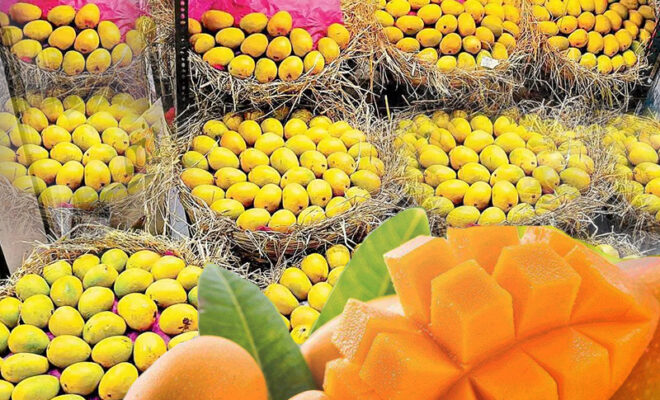National Mango Day 2022: Not An ‘Aam Day’ For The King of Fruits

National Mango Day is celebrated on 22nd July every year to appreciate the joy of mangoes. Mango’s Latin word ‘Mangifera’ was derived from the Sanskrit word ‘Manjiri’.
Most nations in the world mark National Mango Day. Mangoes first appeared 25-30 million years ago in Northeast India, Myanmar and Bangladesh.
Mango is unquestionably the “king of fruits,” as it is known in some regions of the world. They are the perfect marriage of flavor and wellness. They are consumed as juice, jam, and hot pickles.
Also Read: International Chess Day 2022: How Did India’s Chaturang Become Chess?
Mangoes can be found in the widest diversity anywhere in the globe in Northern and North-Eastern India. The delicious, alluring flavor of this beautiful fruit is superior to that of many fine cuisines.
Mangoes can be consumed in a variety of ways, such as fresh off the tree as a fruit, as juice or nectar, in the form of jam and chutney prepared from the fruit’s pulp, in the form of sour pickles, and in shakes made from milk with curds.
Mango is a fruit that is dear to the hearts of all people. Mangoes are a much adored fruit, and a special day has been designated to honor them and the happiness they bring us. We are talking to July 22nd, which is designated as National Mango Day.
History of National Mango Day
Mangoes have been a popular food for Indians since ancient times. Scientific fossil evidence indicates that mangoes first appeared in Northeast India, Myanmar, and Bangladesh 25 to 30 million years ago before spreading to Southern India.
The Sanskrit term “manjiri” served as the inspiration for the Latin word “mangifera,” which means “flowers blooming in small clusters.” This could be a nod to the fruit’s Indian heritage.
Mangoes were previously known as “Amra-Phal.” The name was originally pronounced “Aam-Kaay” in Tamil when it entered South India, but through time, pronunciation differences led to the name becoming “Maamkaay.”
The Malayali further modified this to become “Maanga.” When the Portuguese came to Kerala, they fell in love with the fruit and named it the mango, which is how it became well-known throughout the world.
Significance of National Mango Day
Tropical climes without frost are the ideal environment for the fruit’s best growth. India alone produces over half of the mangoes consumed worldwide, followed by China.
Up to 40% of your daily fiber requirements could be met by one average-sized mango.
Also Read: International Moon Day 2022: Moon Landing by Neil Armstrong & Buzz Aldrin
It has also been discovered that the antioxidants beta-carotene and vitamin C, which are plentiful in mangoes, are essential for the protection of cancer and heart disease.
Additionally, mangoes include the extremely helpful vitamins A, C, and D. People eagerly anticipate eating this delectable and appetizing fruit throughout the entire year.
Given that it is a fruit of joy and wealth, the mango is also used in some religious ceremonies. Everyone in the globe values it highly as a fruit, so it is important to designate a day to honor the delectable fruit.


